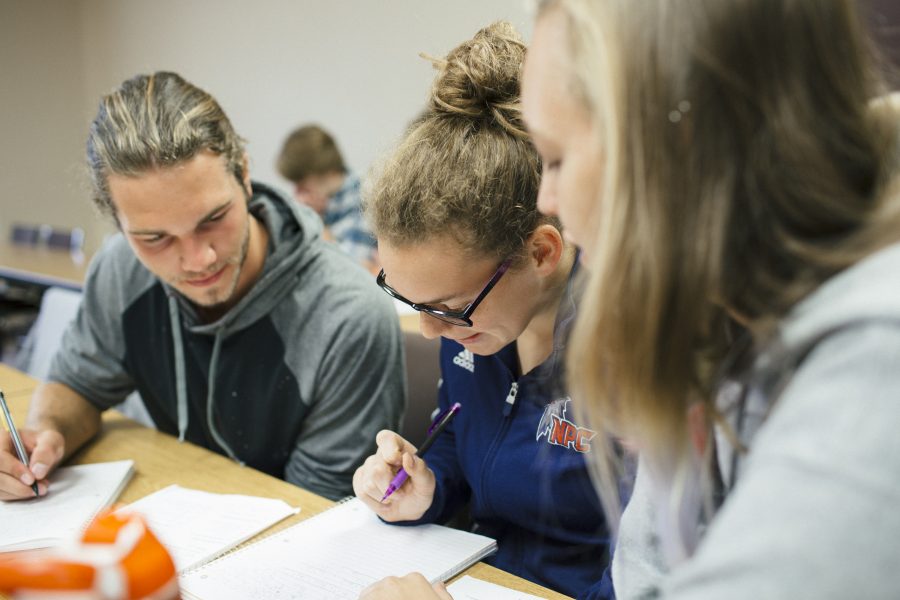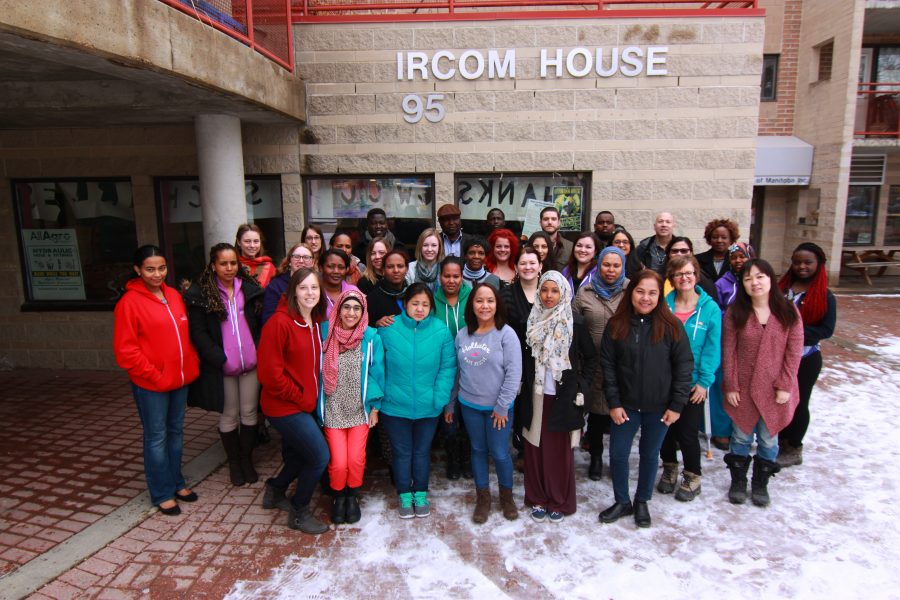
Greetings! My name is Louisa Hofer. I am in my fourth and final year of a social science major.
I decided to do my practicum during the school year as a part of my overall semester, rather than doing an intensive practicum during the summer like many of my friends and fellow students have done. The people I worked with spoke to me along with my readings, professors, and other conversation partners. This helped me learn in a way that I might not have otherwise and in a way that I really needed at the time.
 My practicum took place last semester at the Immigrant and Refugee Community Organization of Manitoba, or IRCOM, as it is more commonly known. IRCOM, is a lot of things. It’s a safe and affordable transitional housing complex for newcomers. It is also home to a multitude of transitional aid programs for both IRCOM residents and members of the West End and West Alexander communities. These programs include English classes, finance classes, job connection services, countless youth and children’s programs, and much more.
My practicum took place last semester at the Immigrant and Refugee Community Organization of Manitoba, or IRCOM, as it is more commonly known. IRCOM, is a lot of things. It’s a safe and affordable transitional housing complex for newcomers. It is also home to a multitude of transitional aid programs for both IRCOM residents and members of the West End and West Alexander communities. These programs include English classes, finance classes, job connection services, countless youth and children’s programs, and much more.
IRCOM is a also group of staff available for questions; many of them who had been newcomers themselves and participated in the very IRCOM programs that they now help run. These staff members also do a lot advocacy work—they attend conferences, panels, and write to politicians regarding relevant policies. IRCOM is a lot of things to a lot people.
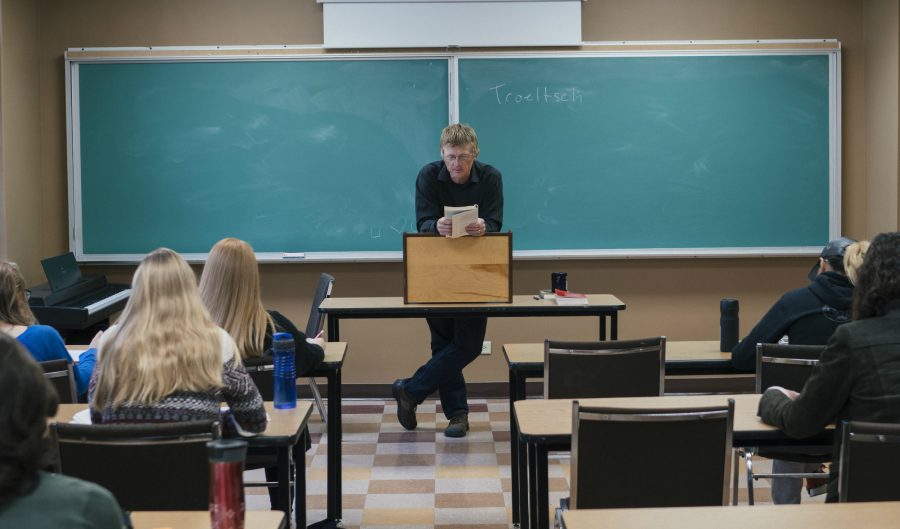
“The City” with Prof. Chris Huebner
While involved at IRCOM, I was also taking a course called: “The City: Theological and Philosophical perspectives” with Prof. Chris Huebner. It’s one of those courses that haunts everything…the kind that seeps into a ridiculous amount of your thought. We read Plato, Augustine’s City of God, Foucault, and more all while watching
the HBO show The Wire, which uncovers the broken lives of people in Baltimore, MD. In a violent revealing it showed us the corrupt and messed up policies and market forces that seem to screw these citizens over in ways akin to the mischievous terror of the gods in a Greek tragedy.
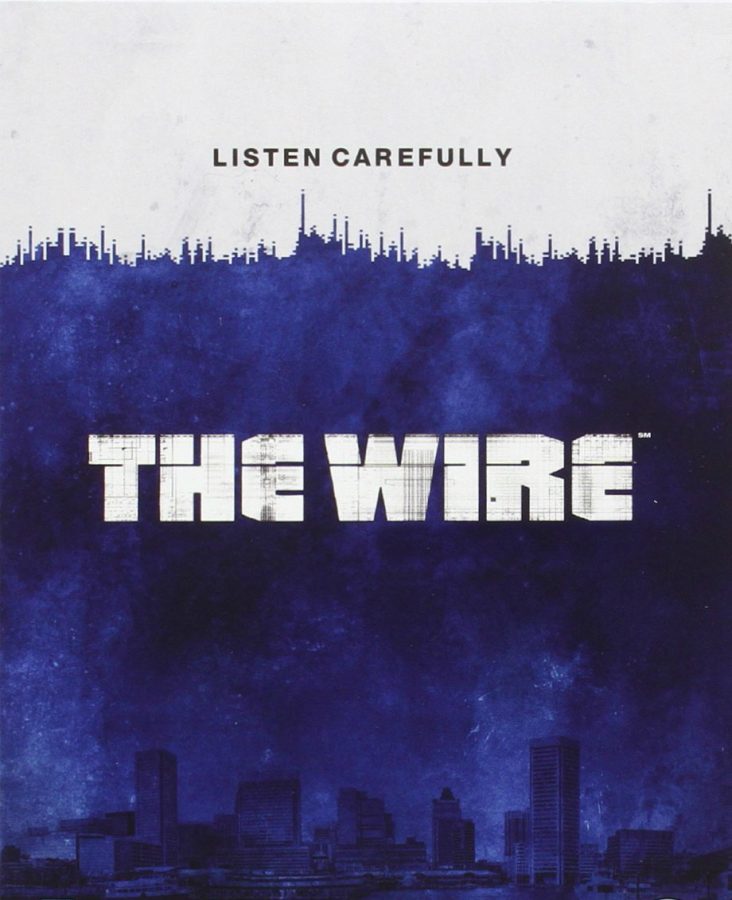 The Wire does this in both a shocking and brilliant fashion. It showed the utter failure of bureaucracy, and caused me to question my faith in humanity’s ability to organize ourselves. If that wasn’t enough, there were other events happening that were certainly not inconsequential, not the least of which was a significant election and the profound mass migration of refugees.
The Wire does this in both a shocking and brilliant fashion. It showed the utter failure of bureaucracy, and caused me to question my faith in humanity’s ability to organize ourselves. If that wasn’t enough, there were other events happening that were certainly not inconsequential, not the least of which was a significant election and the profound mass migration of refugees.
From that heavy and heady space that challenged and lamented the big picture, I would go to IRCOM and assist in little things. On any given week I would do some office work, some filing, or build some IKEA furniture. It was an odd juxtaposition to be assisting in the mundane functions of a non-profit organization with all of those thoughts going on in the background. I approached this place expecting to see people that were troubled and perplexed, but I saw a lot of “just living”—people just going about their day.
My time tutoring in IRCOM’s homework program definitely my favourite task. This program was started by IRCOM kids themselves a few years back and has expanded into quite the endeavour. There are around 60-70 kids all doing their homework (or sometimes not doing their homework) with 5-10 tutors every night.
It is quite the beautiful chaos to see kids from different linguistic, cultural, and religious groups in the same room coming together almost every day. From what these kids have said, this learning community has provided a significant boost in facing an unfamiliar educational system.
![]()
![]() I had been with people who were going about their business, navigating life and forming a little learning community, but this night was a small glimpse into how these lives have so often been cast into controversy and into a narrative of danger, or of crisis and charity. It was a glimpse into how the way they were being narrated and the outcome of the U.S. election would severely effect people who would be trying to make a similar journey that they had.
I had been with people who were going about their business, navigating life and forming a little learning community, but this night was a small glimpse into how these lives have so often been cast into controversy and into a narrative of danger, or of crisis and charity. It was a glimpse into how the way they were being narrated and the outcome of the U.S. election would severely effect people who would be trying to make a similar journey that they had.
There has been a lot to be said for what is going on here, of the protests and the marches attended by these folks, but also the quiet resistance lived-out in the form of everyday life that dwells beyond the labels of danger, of crisis, and charity that people always seem to ascribe.
I’m not sure how this mess will turn out, but it has been an honour to be with these people who just keep doing their thing.
Louisa Hofer is a fourth year student in social science


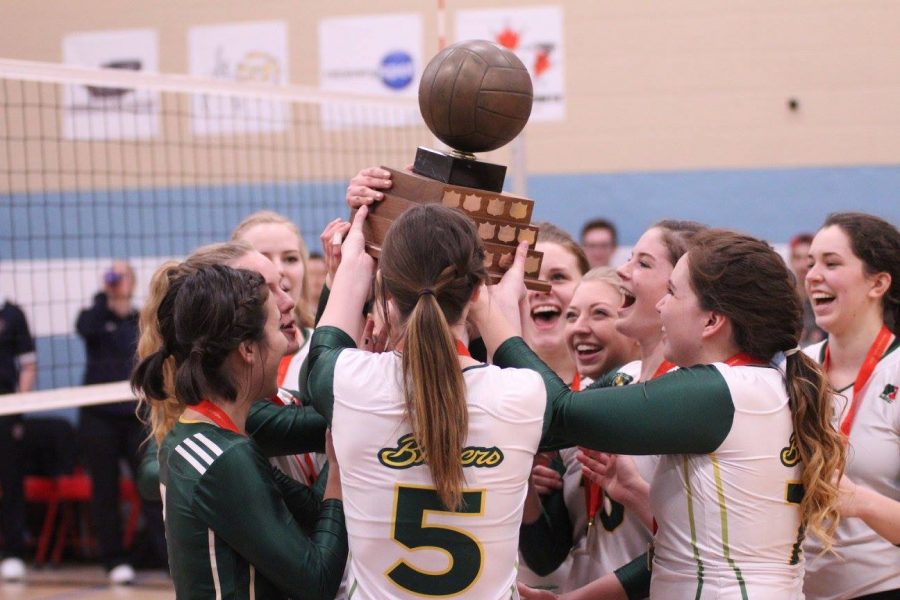
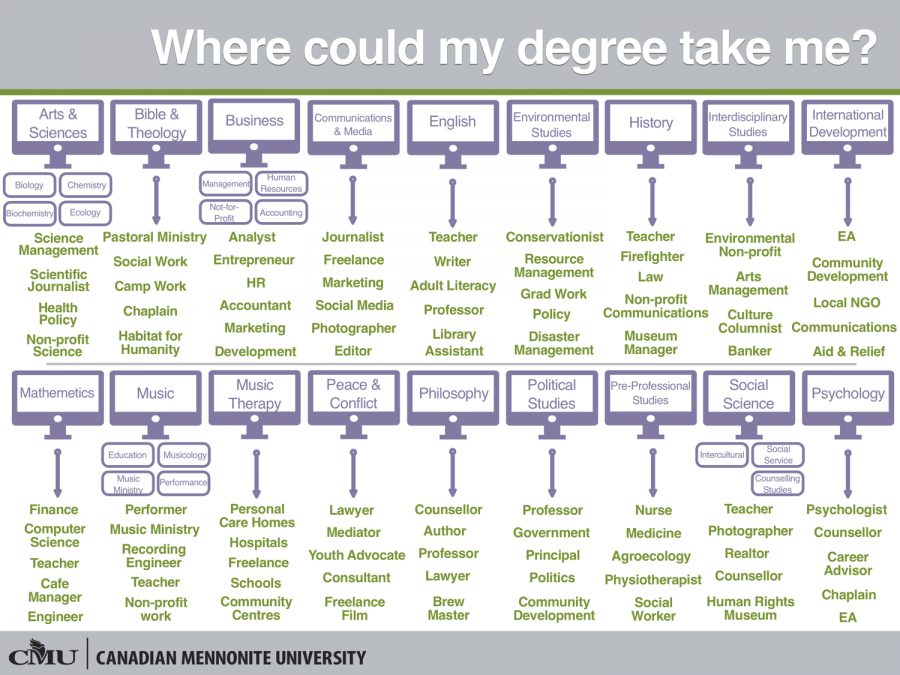
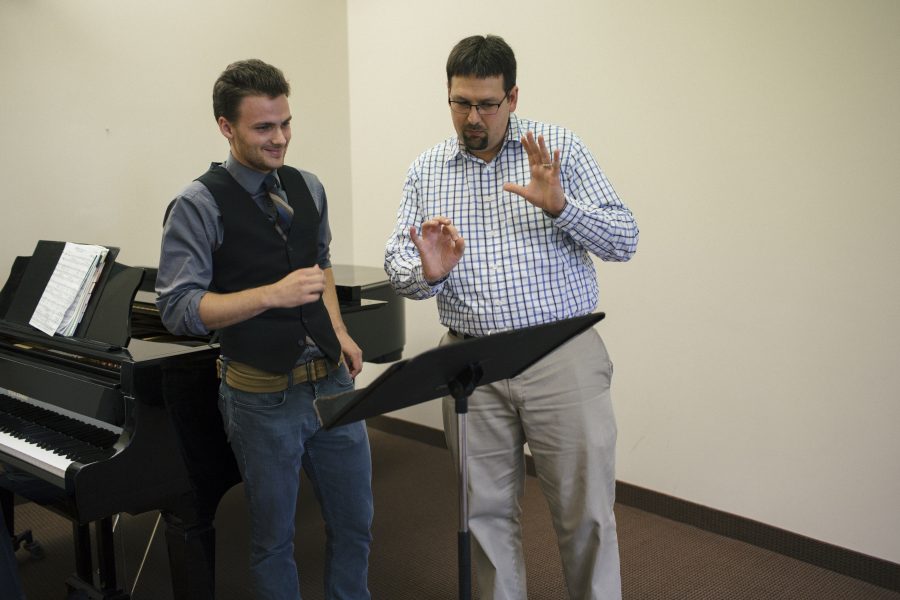 performance. I intend to pursue further studies in this field in the fall, in the hopes that I will one day perform on stage. It’s a daunting and competitive line of work. This scares me, but I know that CMU has set me up well, not only in the sense that I have been trained well musically, but I have also been given a holistic musical education rooted in faith. This will allow me perspective more than anything else; the knowledge that the music I make is in service to others and honouring God.”
performance. I intend to pursue further studies in this field in the fall, in the hopes that I will one day perform on stage. It’s a daunting and competitive line of work. This scares me, but I know that CMU has set me up well, not only in the sense that I have been trained well musically, but I have also been given a holistic musical education rooted in faith. This will allow me perspective more than anything else; the knowledge that the music I make is in service to others and honouring God.”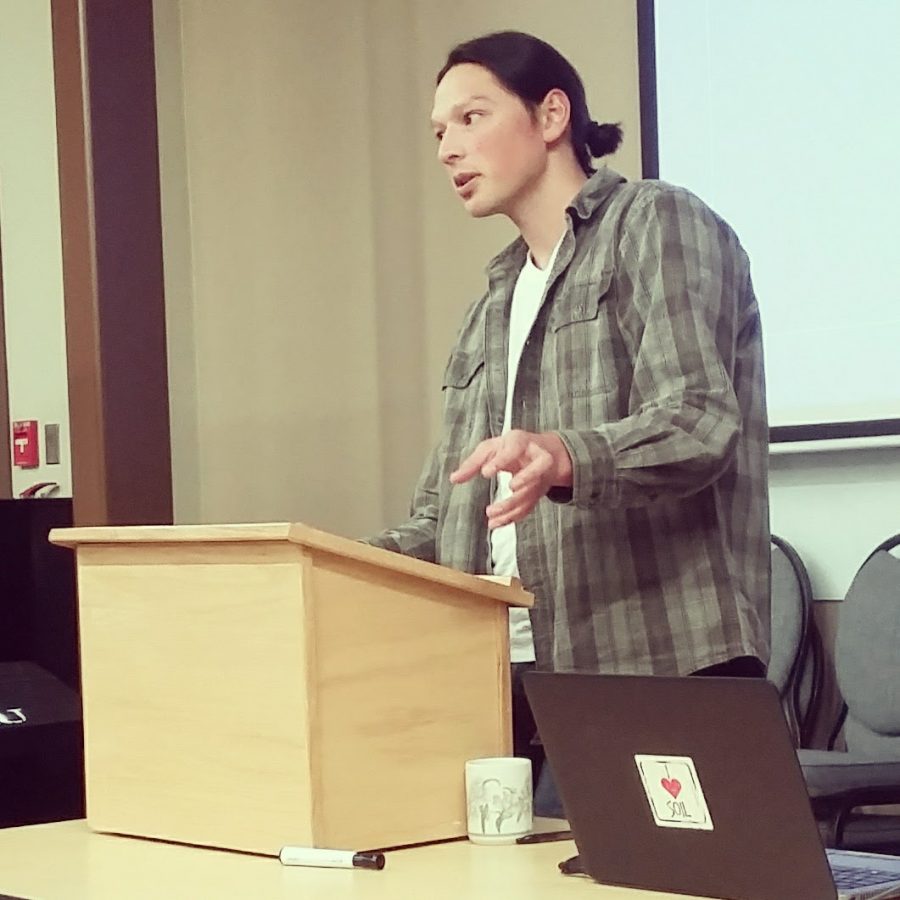 variety of courses. How I live is a lot more important to me than what I do in terms of making a living, which allows me the freedom to live a good life that benefits me and everyone and everything I am connected to. Having time to build and maintain relationships and better understand the world is high on my priority list, and piling on stress isn’t, so I’ve been figuring out how to live a life that reflects that. I think I’ve done a pretty good job of that so far, and CMU and the people here have helped a lot.”
variety of courses. How I live is a lot more important to me than what I do in terms of making a living, which allows me the freedom to live a good life that benefits me and everyone and everything I am connected to. Having time to build and maintain relationships and better understand the world is high on my priority list, and piling on stress isn’t, so I’ve been figuring out how to live a life that reflects that. I think I’ve done a pretty good job of that so far, and CMU and the people here have helped a lot.”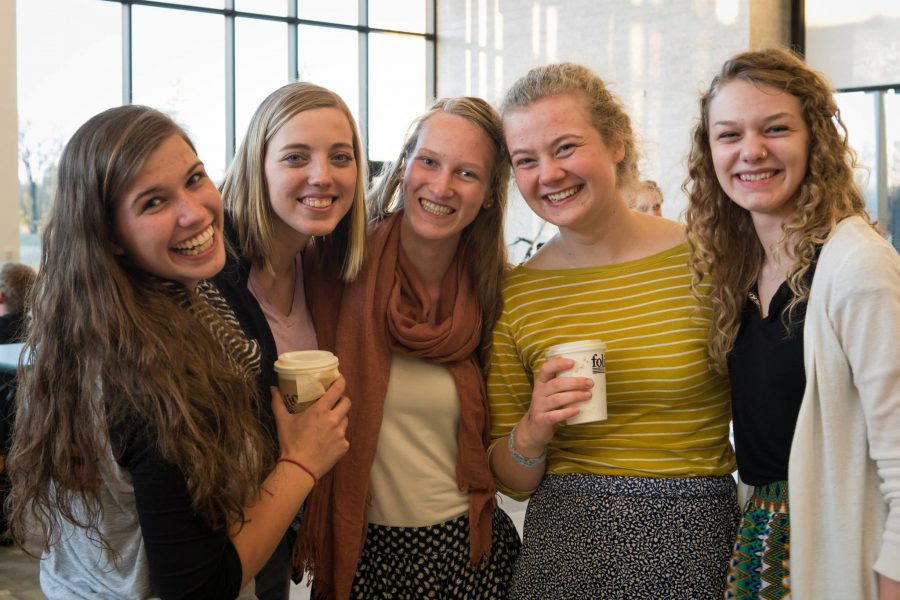 Psychology and a minor in Biblical and Theological Studies. I am planning on entering the Master’s of Physiotherapy program at the University of Manitoba. CMU has been a place that has inspired me to think critically and to explore my passions. Having professors who get so excited about what they teach makes me excited to pursue the things that I care so much about. The people that I have met, along with the education and community experience that I have gotten at CMU, leave me sad to go from here, but have also made me excited to continue with what I have learned. I wouldn’t have changed my time here for anything!”
Psychology and a minor in Biblical and Theological Studies. I am planning on entering the Master’s of Physiotherapy program at the University of Manitoba. CMU has been a place that has inspired me to think critically and to explore my passions. Having professors who get so excited about what they teach makes me excited to pursue the things that I care so much about. The people that I have met, along with the education and community experience that I have gotten at CMU, leave me sad to go from here, but have also made me excited to continue with what I have learned. I wouldn’t have changed my time here for anything!”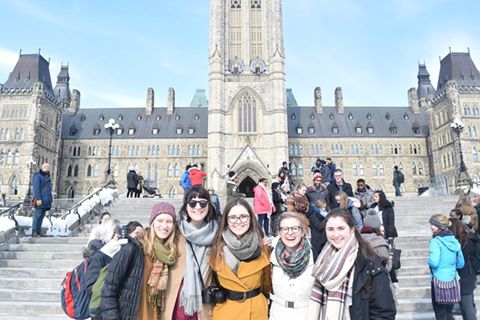 Over reading week, I had the opportunity to attend the Mennonite Central Committee (MCC) student seminar in Ottawa. There were 30 students who attended from across Canada, including four from CMU and two more from Menno Simons College. The theme was Gender, Peace, and Conflict: Exploring the Intersection. We looked at how government organizations, non-profits, and individuals interact with this theme in their work.
Over reading week, I had the opportunity to attend the Mennonite Central Committee (MCC) student seminar in Ottawa. There were 30 students who attended from across Canada, including four from CMU and two more from Menno Simons College. The theme was Gender, Peace, and Conflict: Exploring the Intersection. We looked at how government organizations, non-profits, and individuals interact with this theme in their work.  actions and not enough financial contribution to women’s projects. But I was inspired by hearing these two passionate women who are advocating for policy change.
actions and not enough financial contribution to women’s projects. But I was inspired by hearing these two passionate women who are advocating for policy change.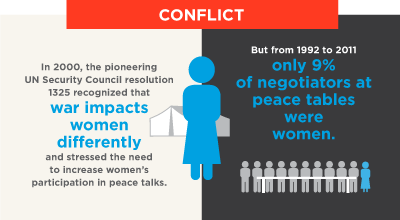 tiators in peace talks were women, despite the fact that a peace process in far more likely to succeed when women are included. It has left me wondering why it is so challenging to adopt an approach that includes women, both locally and internationally.
tiators in peace talks were women, despite the fact that a peace process in far more likely to succeed when women are included. It has left me wondering why it is so challenging to adopt an approach that includes women, both locally and internationally.